What is Ewe?
Ewe refers to multiple things:
1. Ewe language: Ewe is a Niger-Congo language spoken by the Ewe people in Ghana, Togo, and Benin. It is one of the major languages in these countries and has several dialects.
2. Ewe people: The Ewe people are an ethnic group predominantly found in southeastern Ghana, southern Togo, and western Benin. They have a rich cultural heritage and are known for their traditional music, dance, and art.
3. Ewe musical instrument: The Ewe also refers to a musical instrument used by the Ewe people. It is a type of drum made from a large hollowed-out gourd covered with animal skin. They are played by hand or using sticks and are an integral part of Ewe music and ceremonies.
4. Ewe (pronounced “yo”): In English, “ewe” refers to a female sheep. It is the term used specifically for a female sheep, while a male sheep is called a ram, and a baby sheep is called a lamb. The term “ewe” is also used symbolically to refer to a gentle or docile person.
An Introduction to Ewe language and culture
The Ewe language is a member of the Volta-Niger branch of the Niger-Congo language family. It is spoken by over three million people in Togo, Ghana, and Benin. The Ewe people, who primarily live in these three countries, have a rich cultural heritage that is deeply intertwined with their language.
The Ewe language is known for its complex grammatical structure and unique phonetics. It is a tonal language, which means that the pitch of a word can change its meaning. Additionally, Ewe has several vowel harmony rules and a rich inventory of consonant sounds.
In Ewe culture, language plays a central role in social interaction. It is used to express respect, establish relationships, and convey emotions. Ewe people place great importance on communication and are known for their eloquence in speech. Traditional storytelling and oral history are also integral parts of Ewe culture, with many tales and legends being passed down through generations.
Music and dance are vital aspects of Ewe culture. The Ewe people are known for their vibrant and energetic music, characterized by intricate rhythms and polyphonic vocal harmonies. Drumming is particularly important in Ewe music, and various types of drums are used in different contexts, such as religious ceremonies, social gatherings, and traditional festivals.
Religion also holds a significant place in Ewe culture. The majority of Ewe people practice traditional indigenous beliefs, which emphasize spirituality, ancestral worship, and a connection to the natural world. Vodun, a traditional religion with its roots in West Africa, is widely practiced among the Ewe. It involves the worship of various deities and the belief in ancestral spirits.
Cuisine is another important aspect of Ewe culture. Traditional Ewe cuisine consists of staple foods such as corn, yams, cassava, and plantains. These ingredients are used to make a variety of dishes including soups, stews, and porridges. Fish and meat, such as chicken and goat, are also commonly consumed.
Over the years, Ewe culture has evolved and adapted to modern influences while maintaining its traditional roots. Ewe language and culture continue to be a source of pride and identity for the Ewe people, who strive to preserve their heritage for future generations.
Exploring the origins and characteristics of Ewe
The Ewe people, commonly known as Ewe, are an ethnic group that primarily resides in southeastern Ghana, southern Togo, and southwestern Benin. They also have smaller populations in other countries such as Nigeria and Ivory Coast. The Ewe language is one of the largest and most widely spoken languages in West Africa, belonging to the Niger-Congo language family.
Origins:
The origins of the Ewe people are not precisely known, but historical and linguistic evidence suggests that they migrated from the Niger River area in present-day Nigeria and settled in their current location around the 13th century. It is believed that they migrated in several waves, with each wave assimilating with the local populations and forming the Ewe ethnic group.
Characteristics:
1. Language: The Ewe people speak the Ewe language, which is tonal and highly expressive. It is known for its complex vowel harmony system and distinct phonetics. The language is recognized as a national language in Togo and Ghana, and it is also spoken by other neighboring ethnic groups.
2. Culture: The Ewe people have a rich and vibrant culture, which is reflected in their music, dance, folklore, and traditional beliefs. Traditional Ewe music features intricate drumming and polyrhythms, often accompanied by various traditional instruments. Ewe dance is lively and energetic, with performers showcasing impressive footwork and body movements.
3. Religion: The traditional Ewe religion involves the worship of a pantheon of gods and ancestral spirits. They believe in a supreme deity called Mawu, who is often depicted as male and female, representing both the male and female principles. In addition to the traditional beliefs, Christianity and Islam have also gained significant followers among the Ewe people.
4. Agriculture: The Ewe people traditionally have been subsistence farmers, cultivating crops such as yams, maize, cassava, and plantains. They also engage in fishing, hunting, and trading. Modernization has led to some Ewe people engaging in other occupations such as education, business, and government service.
5. Social Structure: The Ewe society is organized into clan-based communities, headed by chiefs and elders. Extended families are highly valued, and lineage ties play a significant role in social relationships. Traditional marriage customs include elaborate ceremonies, and the extended family provides support and guidance to its members.
6. Art and Craft: The Ewe people are known for their artistic skills, particularly in woodcarving and pottery. They create intricate carved masks, statues, and household items, which are often used in religious ceremonies and as decorative pieces.
The Ewe people have a strong sense of identity and cultural heritage, which they continue to preserve and celebrate even in the face of modernization and external influences.

+ There are no comments
Add yours